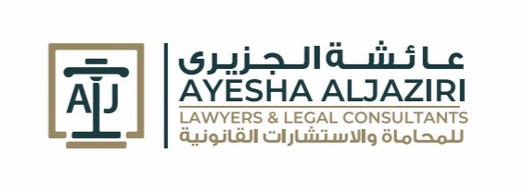In the United Arab Emirates, Shariah law and civil law work side by side to form a distinctive dual legal system. For clients navigating life, business, and investment in Dubai and across the UAE, understanding how these frameworks interact is essential. At Ayesha Aljaziri Lawyers & Legal Consultants, our multilingual team advises individuals and companies on both Shariah-driven personal status matters and codified civil and commercial issues. As a premier full-service law firm in Dubai with full rights of audience before all UAE courts—civil, Shariah, commercial, and appellate—we deliver trusted legal solutions that reflect the UAE’s legal reality and its practical impact on day-to-day decisions.
- The UAE operates a dual legal system where Shariah Law primarily governs personal status for Muslims (including marriage, divorce, custody, and inheritance), while Civil Law governs commercial, corporate, and most procedural matters.
- Shariah Law emphasizes ethical and equitable principles (e.g., fairness, risk-sharing, and avoidance of interest), whereas Civil Law focuses on codified statutes, procedures, and remedies.
- Potential overlaps can arise, but experienced lawyers in Dubai can structure contracts, family agreements, and dispute strategies to align with both frameworks.
Shariah Law in the UAE: Scope and Principles
Shariah law in the UAE draws primarily from the Quran and the Sunnah (Hadith), together with established jurisprudential methodologies. In practice, Shariah has its clearest application in personal status matters for Muslims—marriage, divorce, child custody, guardianship, maintenance, and inheritance—and it also influences Islamic finance structures. When clients come to our law firm in Dubai for guidance on these issues, we prioritize solutions that respect religious principles while ensuring compliance with UAE court procedures.
Core Principles with Practical Implications
Shariah encourages fairness, social responsibility, and transparency. In finance, interest (riba) is prohibited, steering transactions toward profit-and-loss sharing or asset-based models that allocate risk more equitably. For example, Murabaha (cost-plus sale) structures underpin trade finance and consumer purchases, while Ijara (leasing) allows use of assets without transferring ownership during the lease term. Investment partnerships—such as Mudarabah and Musharakah—encourage shared risk and reward between funders and entrepreneurs. Our lawyers in Dubai often pair these structures with robust civil-law documentation to ensure clarity on obligations, default mechanisms, and dispute resolution.
Where and How Shariah Applies
For Muslim family law, Shariah-based personal status legislation and court practice set the baseline rules on marriage validity, divorce procedures, custody considerations, and inheritance distribution. Non-Muslims in the UAE may have different options under applicable non-Muslim personal status provisions or, in some cases, the law of their home country as permitted by UAE conflict-of-laws principles. In banking and investment, Shariah-compliant products are delivered through internal Shariah supervisory boards and are documented to work seamlessly within the UAE’s civil and commercial codes. When we guide clients on Islamic finance, we align product terms with civil-law enforceability and court-recognized remedies, helping mitigate risk while preserving ethical intent. For deeper sector guidance, explore our focus on financial services and banking law in the UAE.
Civil Law in the UAE: Structure and Operation
The UAE’s civil law system is rooted in codified statutes and regulations that govern contracts, property, company formation, agency, torts, and commercial transactions. Cases proceed under formal procedures, with documentary evidence, notarised instruments where required, and expert reports often playing pivotal roles. Understanding documentation standards and procedural timelines is crucial for both local and international businesses operating in Dubai or the wider UAE.
Foundational Codes and Everyday Impact

Core civil and commercial codes set out the formation, performance, and termination of contracts; establish liability regimes; and define remedies. Specialized laws address corporate governance, insolvency, competition, consumer protection, and employment. For example, parties entering supply or distribution agreements frequently rely on civil-law principles to allocate risk, define delivery terms, and specify governing law and jurisdiction. Our commercial lawyers in Dubai and corporate lawyers draft, review, and negotiate such contracts so that commercial intent is preserved and enforcement through UAE courts or arbitration remains robust.
Courts, Free-Zone Courts, and Enforcement
The UAE court landscape includes onshore civil and Shariah courts and, in specific free zones, courts operating on common-law principles. Selecting an appropriate jurisdiction or arbitration forum is a strategic decision. Civil-law remedies (damages, specific performance in narrow circumstances, and precautionary measures) interface with contractual dispute-resolution clauses. Our litigation team, with full rights of audience before all UAE courts, also crafts arbitration clauses that fit client risk profiles. If arbitration is preferred, we ensure compatibility with UAE enforcement pathways, drawing on the firm’s experience as arbitration lawyers in Dubai.
Shariah vs Civil: How the Dual System Works in Practice
Although the phrase “Shariah vs Civil Law” suggests opposition, the UAE system is designed for complementarity. Personal status for Muslims is typically addressed through Shariah-based legislation and courts, while commercial life runs on civil and commercial codes. The key is knowing where the lines are—and where they blur.
Family Law Illustrations
Consider a marriage between two Muslim spouses resident in Dubai. Divorce, custody, guardianship, and maintenance will usually proceed in personal status courts applying Shariah-derived rules. Documentation—such as marriage contracts and any prenuptial or postnuptial terms—can significantly influence outcomes. For expatriates, options may differ depending on nationality, religion, and the applicable law allowed by UAE statutes. Our family lawyers in Dubai and divorce lawyers help clients build clear strategies, prepare evidence, and maintain child-focused approaches that resonate with the courts.
Commercial and Financial Examples
In a Shariah-compliant financing, the parties may use Murabaha or Ijara documentation that is fully enforceable under civil law. Default provisions, security interests, and dispute-resolution clauses are drafted with the civil courts or arbitration in mind. For a cross-border joint venture, parties often choose UAE law and specify arbitration seated in the UAE or a recognized arbitral forum. A well-drafted clause ensures that any Shariah considerations (such as prohibition of interest and the form of returns) are mirrored by civil-law enforceability. Our team regularly blends Islamic finance mechanics with civil-law protections to help clients raise capital and execute projects with confidence.
Criminal and Regulatory Context
Criminal matters in the UAE are governed by codified criminal statutes and procedural laws. While Shariah principles inform the legal tradition, penalties and procedures are set out by legislation, investigated by state authorities, and adjudicated by the courts. For companies and individuals, the practical takeaway is straightforward: comply with the codified rules, maintain strong internal policies (AML/CFT, data protection, HR discipline), and obtain early advice if an investigation begins. Clients seeking comprehensive representation in court can rely on our UAE court representation team, which has full rights of audience across all court levels.
Key Challenges—and How We Help
The chief challenge in a dual system is alignment. Contracts drafted without awareness of Shariah considerations may create friction in financing or succession planning; family agreements that ignore civil procedure can encounter enforceability hurdles. Add to that the multilingual, multicultural nature of the UAE, and clarity becomes paramount. We address these challenges by:
- Integrating frameworks: Harmonizing Shariah objectives with civil-law enforceability in finance, inheritance planning, and family settlements.
- Documentation discipline: Ensuring contracts, powers of attorney, and court submissions meet formal requirements for evidence and execution.
- Strategic forum selection: Advising when to choose onshore courts, free-zone courts, or arbitration to secure efficient, enforceable outcomes.
- Sector fluency: Applying domain-specific knowledge across real estate, employment, healthcare, technology, transport, and more to reduce risk and expedite deals.
Our lawyers work in Arabic and English, and additional languages as needed, ensuring clients fully understand options, timelines, and likely outcomes. This multilingual capability, combined with fast turnaround and bespoke advisory packages, helps clients navigate the system with confidence.
Frequently Asked Questions
What is the relationship between Shariah Law and Civil Law in the UAE?
Shariah Law primarily addresses personal status for Muslims and underpins Islamic finance ethics. Civil Law governs contracts, companies, property, commercial disputes, and most procedures. Rather than competing, the systems are designed to complement one another; our role is to build documents and strategies that respect both.
How does the dual legal system affect residents and businesses?
Residents benefit from a system that recognizes religious principles in family life while providing predictable, codified rules for commerce. Businesses operate mainly under civil and commercial codes but may need to accommodate Shariah considerations (e.g., finance structures). With experienced guidance from our civil lawyers in Dubai, clients can plan transactions and disputes with clear expectations.
Can foreigners choose which legal system applies?
It depends on the matter. In personal status, non-Muslims may have options under dedicated non-Muslim personal status provisions or, in certain cases, their home-law rules as permitted. In commercial dealings, civil law predominates, although parties can select governing law and dispute forums within statutory limits. We advise expatriates and multinationals on choice-of-law and enforcement pathways suited to their objectives.
How are disputes resolved in practice?
Most commercial disputes are resolved through civil courts or arbitration. Family disputes for Muslims typically proceed in personal status courts. We help clients evaluate mediation, court litigation, or arbitration, balancing speed, confidentiality, and enforceability. When arbitration is selected, our specialists draft clauses aligned with UAE recognition and enforcement rules, safeguarding business continuity.
What should companies consider when using Islamic finance?
Beyond Shariah approval, companies should confirm that transaction documents align with civil-law requirements on default, security, and remedies. Carefully drafted governance and disclosure provisions help maintain compliance and reduce disputes. Our financial services team ensures product design, documentation, and enforcement are coordinated from the outset.
Why Choose Ayesha Aljaziri Lawyers & Legal Consultants
Founded by respected UAE attorney Ayesha Aljaziri, our firm provides comprehensive legal services across 14 practice areas, including commercial, corporate, real estate, labour and employment, technology and media, transport and logistics, healthcare, retail and consumer, and more. We maintain full rights of audience before all UAE courts, eliminating the need for external counsel and enabling seamless representation from advisory to dispute resolution. Whether you are structuring a Shariah-compliant investment, finalizing a commercial contract, or addressing a sensitive family matter, we combine deep sector knowledge with courtroom credibility. Explore our broader dispute capabilities with our litigation lawyers in Dubai.
Get Tailored Guidance Today
If you are evaluating how Shariah Law vs Civil Law in the UAE affects your family, business, or investment, speak to our team. We will clarify your options, align documentation with the appropriate framework, and represent you efficiently before the right forum. Contact us to schedule a consultation and benefit from experienced lawyers in Dubai who deliver trusted legal solutions across the UAE.








